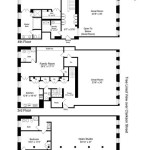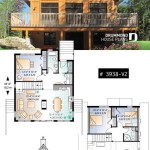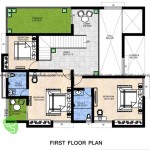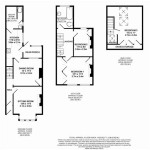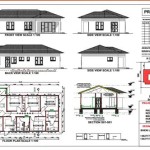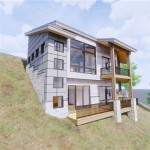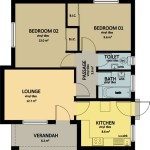Concrete Exterior Wall House Plans: A Comprehensive Guide
Introduction
When it comes to designing a contemporary home, choosing the right exterior wall material is crucial. Concrete exterior wall house plans offer a combination of durability, aesthetics, and energy efficiency, making them a popular option among architects and homeowners alike. In this guide, we will delve into the advantages, disadvantages, and design considerations of concrete exterior wall house plans.Advantages of Concrete Exterior Walls
*Durability:
Concrete is renowned for its exceptional strength and longevity, making it resistant to fire, pests, and adverse weather conditions. *Energy Efficiency:
The thermal mass of concrete helps regulate indoor temperatures, reducing the need for heating and cooling. *Low Maintenance:
Unlike other exterior materials, concrete requires minimal maintenance and can withstand harsh cleaning methods. *Aesthetic Versatility:
Concrete can be shaped, textured, and stained to create a wide range of design options from modern to traditional. *Soundproofing:
The dense nature of concrete provides excellent sound insulation, creating a peaceful and serene living environment.Disadvantages of Concrete Exterior Walls
*Cost:
Concrete exterior walls can be more expensive than other options such as wood or vinyl siding. *Complexity of Construction:
Installing concrete walls requires skilled labor and specialized techniques, making the construction process more complex and time-consuming. *Weight:
Concrete is a heavy material, which can put additional stress on the foundation of the house. *Thermal Expansion and Contraction:
Concrete expands and contracts with temperature changes, so proper jointing and engineering are essential to prevent cracking. *Moisture Control:
Concrete is porous, so waterproofing measures are essential to prevent water intrusion.Design Considerations
When designing a house with concrete exterior walls, several factors should be considered: *Structural Design:
The weight of concrete walls must be accounted for in the structural design of the house. *Insulation:
While concrete provides thermal mass, additional insulation may be required to achieve optimal energy efficiency. *Expansion Joints:
To accommodate thermal expansion and contraction, expansion joints must be properly placed and sealed. *Waterproofing:
Exterior walls should be waterproofed with membranes, coatings, or sealants to prevent water penetration. *Finishes:
Concrete walls can be finished with various techniques such as staining, painting, or applying decorative overlays.Conclusion
Concrete exterior wall house plans offer numerous advantages, including durability, energy efficiency, and aesthetic versatility. However, it is important to be aware of the potential drawbacks and carefully consider design factors before choosing this option. By incorporating sound design and construction principles, concrete exterior walls can create strong, beautiful, and energy-efficient homes that stand the test of time.
Cool Energy Efficient Concrete House Plans Houseplans Blog Com

Cool Energy Efficient Concrete House Plans Houseplans Blog Com

Nb Superinsulated House February 2010 Exterior Wall Cladding Design Concrete Block Foundation

Cool Energy Efficient Concrete House Plans Houseplans Blog Com

Solid As A Rock 11 Unbelievable Concrete Homes Houses Cement House

Concrete Houses Top 5 Residential Architecture Projects With Design

Awesome 25 Incredible Concrete Exterior Screen Wall Ideas For Amazing Home Https Decorathing Co House Designs Design Wood

26 Concrete Houses Photos

Cool Energy Efficient Concrete House Plans Houseplans Blog Com

Concrete House Raw Architecture Work Archdaily

